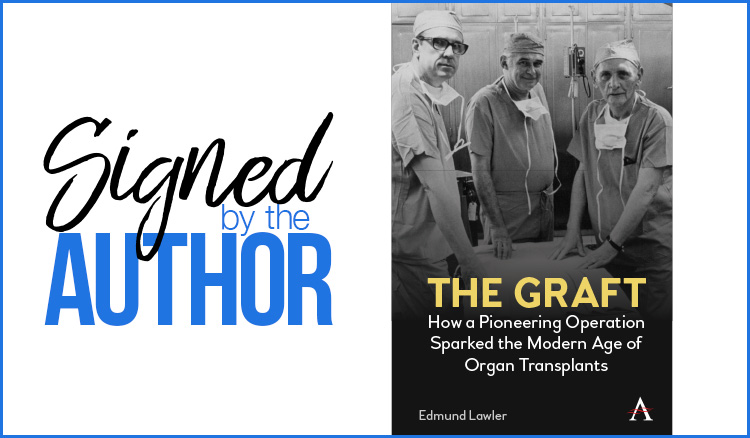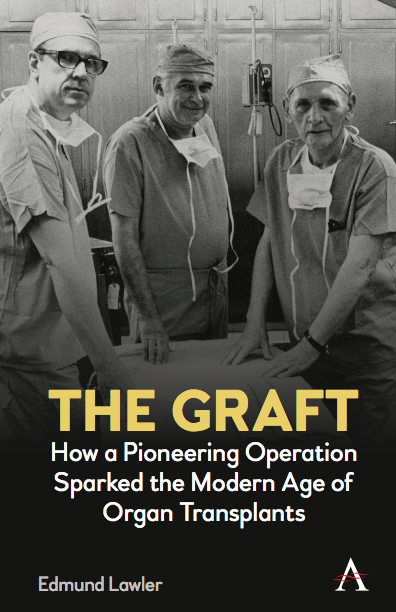 (DePaul University/Jeff Carrion)
(DePaul University/Jeff Carrion)
The Graft: How a Pioneering Operation Sparked the Modern Age of Organ Transplants
By: Edmund Lawler, adjunct faculty, Department of Journalism
"The Graft" shines a light on the first human organ transplant, a story that has been largely lost to history. The 1950 kidney transplant, led by Dr. Richard Lawler, broke new ground in medicine's quest to transplant human organs. This book examines the operation at Little Company of Mary Hospital in Evergreen Park, Ill., and the controversy and ethical considerations of the organ transplant that followed.
The operation was the spark for the world's leading medical centers to advance their organ transplant programs, which came to overshadow the work of Dr. Lawler and his surgical team.

Who or what inspired you to write this book?
The 1950 transplant was part of family lore. I had always been curious about the operation led by my great-uncle, who graduated from DePaul in 1929 when he was almost 36.
In 2018, I got curious enough about his operation to begin researching it. I drafted a proposal and pitched it to publishers. Unfortunately, I never got to know my great-uncle, who died in 1982. But I think he would have been proud to know that I teach at his alma mater.
What’s the most surprising thing you learned while writing this book?
I was surprised to learn of the criticism and professional ostracism Dr. Lawler faced after leading the transplant team. Some Catholic clergy condemned the operation, saying he was "playing God" or that his team "desecrated" the body of the deceased donor by removing one of her kidneys to implant into a 44-year-old woman. The clergy's criticism was ironic because the transplant took place in a Catholic hospital and was approved by the nun who ran it.
Some in the medical community were just as harsh. They condemned Dr. Lawler for performing the surgery before drugs to prevent organ rejection were developed.
But time heals all wounds. In 1970, he was nominated for the Nobel Prize in Physiology or Medicine. He didn't win, but his reputation was redeemed over time.
Persuade someone to read your book in less than 50 words:
It's an underdog story about a maverick medical pioneer. By performing the world's first human organ transplant in 1950 at a Catholic community hospital in suburban Chicago, Richard Lawler beat the major medical centers in Boston and Paris. But he flew into controversy, not glory.
About the author:
Edmund Lawler is adjunct faculty in the Department of Journalism. A journalist by trade, he began teaching journalism part time at DePaul in 1993. From 1996 to 2006, he was full-time faculty as a senior journalism instructor and faculty advisor to The DePaulia. He managed the university's internal communications from 2006 to 2013 and continued to teach as an adjunct. He has written five previous books and co-authored a sixth.
Publisher, release date:
Anthem Press, August 2021
Signed by the Author allows DePaul faculty and staff to introduce their recently published or upcoming book or chapter to the university community. To submit your book or chapter for consideration,
contact Newsline.